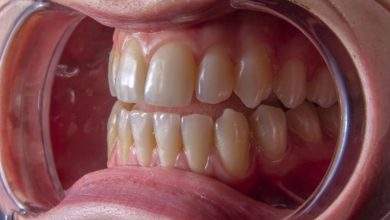
Healthcare organizations now face a unique challenge where people often make decisions about care providers during moments of vulnerability. Whether someone is searching for a home care agency or a specialized physician, they want reassurance that others have had positive experiences before them.
This is understandable as revenue in the global healthcare providers market is expected to cross the $8 trillion mark this year. That means people are paying a lot of money for various healthcare and related services, so they want a return for it. Thus comes their need to see social proof, which, as a result, has become an essential part of healthcare marketing.
When used thoughtfully, social proof humanizes a brand, strengthens reputation, and influences real decision-making in profound ways. Here’s how.
Letting People Know What the Client Excels At
One of the core strengths of social proof is its ability to shine a spotlight on what a healthcare provider genuinely does well. A patient story about compassion during recovery or a public review praising professionalism can highlight qualities that might otherwise be lost.
These organic expressions of satisfaction help potential patients understand not just what a provider offers, but why that provider stands out. When presented authentically, social proof becomes a subtle form of storytelling.
To make this even more effective, website design must support and amplify these strengths. Take the case of home care agencies as an example. Effective home care website development ensures that testimonials, reviews, and experience-driven content are positioned naturally within a site’s structure.
Here, first impressions online often decide whether someone will explore services further. Good website design can guide site visitors to the information that emotionally resonates with them.
According to Curis Digital, a website should act as an informational portal that brings in a consistent flow of clients on a regular basis. When paired with thoughtful SEO strategies, such websites help ensure that families searching for dependable healthcare providers feel connected to the agency’s brand identity.
Building Trust Through Authenticity
Between 2021 and 2024, the US hospital sector saw a decline in trust. In fact, from 2021 to 2024, trust in this sector decreased by 5 percent. This is not good at all, as in healthcare, earning the customer’s trust is a must.
Patients can sense when reviews feel overly polished or when testimonials sound scripted. This is why it’s important for providers to gather real feedback and present it in a way that feels natural.
Genuine stories provide emotional depth, allowing potential patients to see themselves in the narrative. For example, a testimonial about a nurse who went the extra mile during post-surgery care may resonate deeply with someone preparing for similar surgeries.
Another powerful form of social proof in healthcare is peer validation. When professionals endorse a service, participate in collaborative care, or share research affiliations, it adds an additional layer of credibility. People want to know not only that other patients approve, but that experts in the field recognize the provider’s competence.
Expanding Social Proof Beyond Testimonials
Modern healthcare marketing has expanded the definition of social proof far beyond traditional testimonials. Case studies, patient journeys, community involvement initiatives, and even engagement on social platforms all contribute to credibility.
For instance, when a clinic actively participates in local health events or supports community wellness initiatives, it subtly conveys commitment and expertise. When people see consistent interactions, helpful insights, and positive discussions online, they begin to perceive the organization as approachable and trustworthy.
In addition, storytelling formats like videos featuring patient narratives have become increasingly popular. These provide emotional resonance that helps people feel connected even before contacting a provider. Visual forms of social proof often leave a lasting impression, making the care experience feel more personal and transparent.
FAQs
How is social proof used in marketing?
Social proof is used by showing real customer experiences that build trust. Reviews and testimonials help people feel confident. Brands use influencers to highlight positive outcomes. Popularity signals also guide buying decisions. When people see others enjoy a product, they feel safer choosing it. This effect increases engagement and strengthens brand credibility.
How does social marketing work in health care?
Social marketing in health care promotes healthy behaviors through targeted messages. Campaigns use research to understand community needs. Clear communication helps people adopt safer habits. Stories and peer examples encourage trust. Health groups also use digital tools to spread accurate information. The goal is long-term behavior change that improves public well-being.
How important is social proof?
Social proof is very important because people rely on others when making choices. It reduces doubt during decisions. Strong social proof increases credibility and builds quick trust. Customers feel safer when they see positive experiences. It also improves brand visibility. Effective social proof often leads to higher conversions and stronger loyalty.
As of 2025, the worldwide healthcare digital marketing market is valued at $305 million. And in this marketing sphere, social proof is no longer an optional element. It has become a vital part of how patients evaluate, compare, and ultimately choose their care providers.
Healthcare is ultimately about people caring for people, and social proof brings that truth to the forefront. When used sincerely and strategically, it strengthens trust, elevates reputation, and helps guide patients toward the support they need with confidence.




